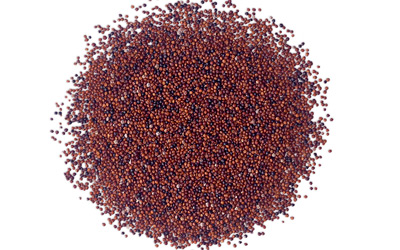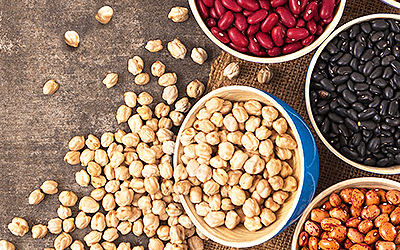Eating whole grains is considered a beneficial strategy for preventing type 2 diabetes, heart disease, and other conditions.1 Several studies have also suggested their positive effects on body weight; however, the results of some trials have been inconsistent.
American scientists put the current recommendations to replace refined grains with whole grains to the test, particularly their effects on calorie balance.
The Study
This randomized clinical trial was conducted at the Jean Mayer USDA Human Nutrition Research Center on Aging at Tufts University. The findings were published in The American Journal of Clinical Nutrition.
Participants were men and postmenopausal women between the ages of 40 and 65. For the first two weeks, participants passed through a run-in phase, during which they ate the same diet. Researchers measured their weight-maintenance energy needs for weight stability.
After that, they were randomly divided into two groups and followed their assigned diet for the next six weeks:
- Group 1 consumed a weight-maintaining whole grain-based diet
- Group 2 consumed a weight-maintaining refined grain-based diet
Both diets were the same, except for their whole grain and fiber contents.
At several points throughout the trial, researchers took various assessments, including the resting metabolic rate, anthropometric data, stool and blood samples, gut microbiota, and others.
The Results
Participants in the whole grain-based diet had increased biomarkers of whole grain intake. They also showed greater changes in the resting metabolic rate, stool weight, and stool energy content than those in the refined grain-based group.
In total, those eating whole grains had more favorable energetic effects, with a 92-kcal/d higher net daily loss than those in the comparison to those eating refined grains.
Whole grain participants also had improved glycemia and prospective consumption scores compared to the refined grains participants.
What Does this Mean?
According to the results of this trial, eating whole grains has positive effects on calorie balance, particularly the resting metabolic rate and stool energy excretion.
These beneficial effects of whole grains on body weight are particularly important for older adults as maintaining a healthy weight can decrease their risk of developing health problems, including heart disease.
The findings of this trial also support dietary recommendations to include more whole grains as part of a healthy diet. Some of the best grains to add to your daily meals are quinoa, buckwheat, amaranth, millet, barley, and kaniwa.
Sources
- The American Journal of Clinical Nutrition, Substituting whole grains for refined grains in a 6-wk randomized trial favorably affects energy-balance metrics in healthy men and postmenopausal women, 2017
Footnotes:
- Harvard T.H. Chan. (n.d.). Whole Grains. Retrieved December 6, 2023, from https://www.hsph.harvard.edu/nutritionsource/what-should-you-eat/whole-grains/









